
Home |
About Us |
How to Participate |
Biodiversity Modules |
Projects |
Maps |
News |
Resources

Home |
About Us |
How to Participate |
Biodiversity Modules |
Projects |
Maps |
News |
Resources
|
Definition of "Unvegetated" - General Code 100: Less than 10% vegetation cover. Refers mostly to large areas of bare rock, saline flats, and permanent snow and ice fields. |
Unvegetated: Talus slopes (110)
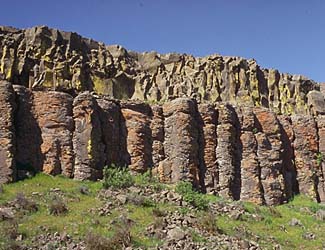 | |
| Descriptive Habitat Code: Talus slopes are cliff habitats having less than 10% vegetation cover (1) and include large areas of bare rock (10). | |
| Photo: KMD | |
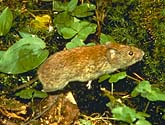 Gapper's red-backed vole Clethrionomys gapperi Code: CLGA Photo: WDFW |
Distribution and Habitat: This species is found from sea level to the timberline on both sides of Washington State. Diet: Interesting fact: |
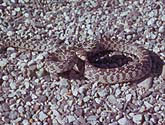 Gopher snake Pitouphis melanoleucas catenifer Code: PIME Photo: WDFW |
Distribution and Habitat: It is found in mountainous and rocky areas up to an altitude of at least 8000 feet. Diet: Interesting
fact: |
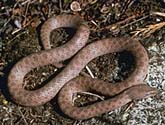 Night snake Hypsiglena torquata Code: HYTO Photo: TM |
Distribution and Habitat: It is found in a variety of habitats including deserts, woodlands, mountain meadows, grasslands, chaparral, sagebrush flats, and also in both rocky and sandy areas. Diet:
Interesting
fact: |
 Great horned owl Bubo virginianus Code: BUVI Photo: KMD |
Distribution and Habitat: It is found across the state in cliff areas. Diet: Interesting
fact: |
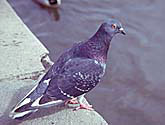 Rock dove Columba livia Code: COLI Photo: RA |
Distribution and Habitat: It is found in most medium-sized and large cities of the United States and in the Columbia Basin. Diet: Interesting fact: |
 Western fence lizard Sceloporus occidentalis Code: SCOC Photo: WDFW |
Distribution and Habitat: It is found in a variety of habitats including grasslands, woodlands, coniferous forests, deserts, farmland, and chaparral. Diet:
Interesting fact: |
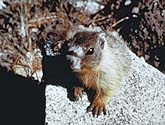 Yellow-bellied marmot Marmota flaviventris Code: MAFL Photo: WDFW |
Distribution and Habitat: It is found throughout parts of eastern Washington in semi-arid habitats. Diet: Interesting
fact: |
Home |
About Us |
How to Participate |
Biodiversity Modules |
Projects |
Maps |
News |
Resources